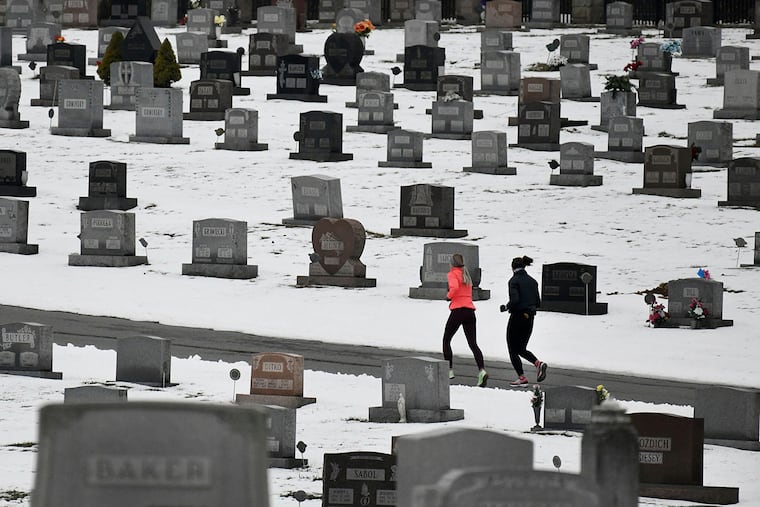Amid a crisis in American health, we are not moving fast enough
Our country’s COVID-19, overdose death, and gun homicide rates are the highest in the developed world.

The idea of “American exceptionalism” — that the United States is inherently different from other nations — is often debated in political circles. But in public health circles, it’s not controversial at all.
Our COVID-19 death rate is the highest in the developed world and higher than all but Greece and Czechia, leaving more than one million Americans dead. Our overdose death rate is the highest in the developed world, killing more than 107,000 people last year — a record high.
Our gun homicide rate is the highest in the developed world, and 26 times higher than other high-income countries. At the same time, we account for about 4% of the world’s population and around 35% of gun suicides globally.
The dark side of American exceptionalism is staring us right in the face, even though many elected officials prefer not to see it.
The leading cause of death in the U.S. is heart disease. Obesity is a major risk factor — and, on this front again, our obesity rate makes us the most obese developed nation in the world.
Even before the pandemic, Americans’ life expectancy had stagnated. Then, for the first time in over a century, it fell precipitously, erasing almost 25 years’ worth of gains. According to a recent report from the Centers for Disease Control and Prevention, life expectancy declined again last year to 76.1 years, down 2.8 years from its 2014 peak. The decline has not been uniform, either. Racial and ethnic disparities continue to widen, worsening already shameful inequalities in American society.
The U.S. now ranks 40th in life expectancy globally, and that ranking is likely to fall further once more data are available. It doesn’t have to be this way.
This week, public health leaders are convening at a summit in Philadelphia organized by the Bloomberg American Health Initiative, which we created in 2016 in partnership with Johns Hopkins University. We identified five critical threats to American life and health — addiction and overdose, adolescent health, environmental challenges, obesity and the food system, and violence — and set out to find and support innovative new ways of tackling them.
Philadelphia exemplifies not just the challenges facing public health today, but also the field’s power to extend and improve millions of lives. The city set a pair of grim records in 2021, as both gun deaths and overdose deaths rose to all-time highs. While city officials grapple with those dual crises, more U.S. cities can look to and learn from Philadelphia’s pioneering leadership on healthy food policy.
Six years ago, Philadelphia became the first major U.S. city to adopt a tax on sugary drinks to help tackle obesity. The industry tried to overturn it, but Mayor Jim Kenney and the city successfully defended it — a critically important effort I was glad to help support. Now the tax is doing what it was intended to do: reduce sales of sugary drinks (down 35%, in fact) while also funding universal prekindergarten in the bargain.
To help point more policymakers toward effective action, the Bloomberg American Health Initiative is releasing a new report called “Reversing the Decline.” It offers 10 practical steps for addressing underlying causes of the biggest contributing factors to declining life expectancy. Those steps include enacting stronger gun laws, making sure medications to treat opioid use are the standard of care in all medical settings, and reducing sodium in processed foods, among other interventions.
Amid a crisis in American health, one silver lining is that there is plenty of room for improvement. The challenges we face are serious and stubborn — but they are not insurmountable. After all, our history is filled with extraordinary successes. Anyone who buckled a seat belt today, or who ate a doughnut without trans fats in a smoke-free diner, has benefited from public health interventions, even if they do not realize it. During my 12 years in New York City Hall, we extended life expectancy by three years.
Right now, though, we are not moving fast enough. The antidote to despair is action, and it starts with refusing to accept the dark side of American exceptionalism.
Michael R. Bloomberg is the founder of Bloomberg Philanthropies and Bloomberg LP, the 108th mayor of New York City, and WHO global ambassador for noncommunicable diseases and injuries.